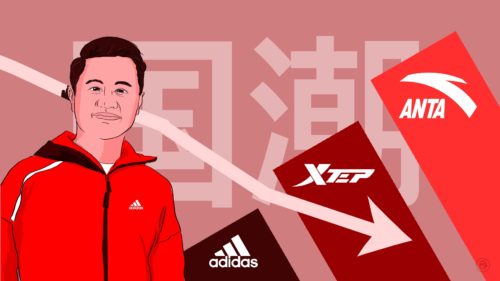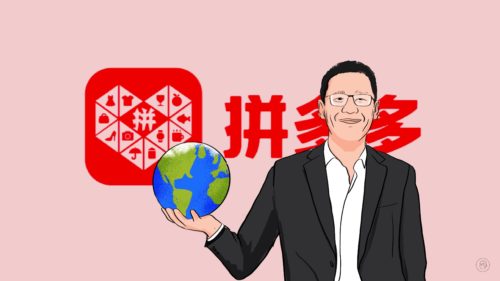JD Finance under fire for advertising that preys on the poor
China’s fintech companies are under growing pressure as their need for rapid growth leads to ethically questionable business practices that target the financially vulnerable.

The astronomical growth of the online micro-lending business in China — which allows consumers to get an advance on income to buy products at the tip of their fingers — has made it easier for predatory lenders to take advantage of the financially vulnerable. A recent controversy surrounding JD Finance, the fintech arm of ecommerce giant JD.com, has drawn public scrutiny to the unethical practices of some of China’s biggest tech companies.
The company came under fire last week for an ad campaign designed to promote its internet-based lending services. In a low-budget video (in Chinese) that appeared on Douyin, the Chinese version of TikTok, a migrant worker becomes a target of scorn and ridicule on a flight for asking the airline staff to open the window next to the passenger next to him, his mother, who appears to have air sickness.
When asked by a flight attendant if he wants to upgrade his mother’s seat, the man, dressed in shabby clothes, rejects the offer while showing that he only has 53.12 yuan ($8) in his savings account.
Then another passenger decides to chime in to help. He takes over the worker’s phone and borrows 150,000 yuan ($22,901) on the man’s behalf from JD Gold Bars, a flagship product by JD Financial that offers revolving credit lines for users who need spare cash. “Consider it as your emergency cash fund. Just withdraw some money from the account when needed. Don’t let rude people look down on you,” the man in suit explains to the worker.
When the worker cautiously raises questions about potential dangers carried by the loan, the man confidently makes light of his concerns while boasting of the product’s features and reliability. The just-over-one-minute video concludes with the worker totally sold on the service, followed by a call to action urging viewers to download the app.
The campaign includes a series of videos similar to this one. In another short clip that features the same migrant worker, a stranger encourages him to take out another loan from JD Gold Bars when he checks into a hotel and finds that the only room available is a luxury suite.
Responses to the campaign were swift and merciless on Chinese social media, with many detractors accusing JD Financial of blatantly encouraging reckless spending and purposefully glossing over the consequences it could entail, which at worst could result in an unmanageable amount of debt for a habitual overspender. “Shame on you JD for such an irresponsible, misleading, tasteless ad!” a Weibo user wrote (in Chinese). Another commented (in Chinese), “The people who greenlit the advertisement are morally corrupt. Apparently, for them, making money takes priority over people’s financial security.”
Many critics pointed out that by portraying the migrant worker as “an annoying passenger who makes unreasonable demands on a plane,” the video displayed contempt for low-wage earners. However, they argued that the ad might still seem appealing to those who are in financial distress, potentially trapping them in a spiral of debt.
“The ad is outrageously problematic in so many ways. But on top of everything, my biggest issue with it is how it advertises a for-profit service as a charitable cause,” a Weibo user wrote (in Chinese), while another suggested (in Chinese) that every ad for micro-lending services “need to be candid about the risks involved.”
In response to the growing backlash, JD Financial released a statement (in Chinese) on December 17, apologizing for missing the mark and announcing that it had withdrawn the controversial ad. “There’s no excuse for the mistake. We are at fault,” the statement read. “JD has launched an investigation into the matter. We will find the root of the problem and hold people responsible for the mistake to account.”
With a growing list of Chinese internet companies jumping on the bandwagon of online lending, creating their own products, and advertising them as risk-free, freewheeling consumption has become a serious issue among cash-strapped consumers in China, especially the youth. According to a Nielsen report released last year, the average debt level of Chinese millennials was 120,000 yuan ($18,321), approximately equal to 1,850% of their monthly incomes. A survey of Chinese households issued earlier this year revealed that under the economic pressure of the COVID-19 pandemic, the country’s poorest — those making 50,000 yuan ($7,633) or less a year — reported the highest level of consumer loan demand.
As China started to strengthen rules to boost the oversight of online micro-lending, an increasing number of lenders were racing to collect from indebted individuals, sometimes by hiring debt collectors to track down targets and make threats. The aggressive tactics have driven some debt-ridden borrowers to commit suicide, including university students.






